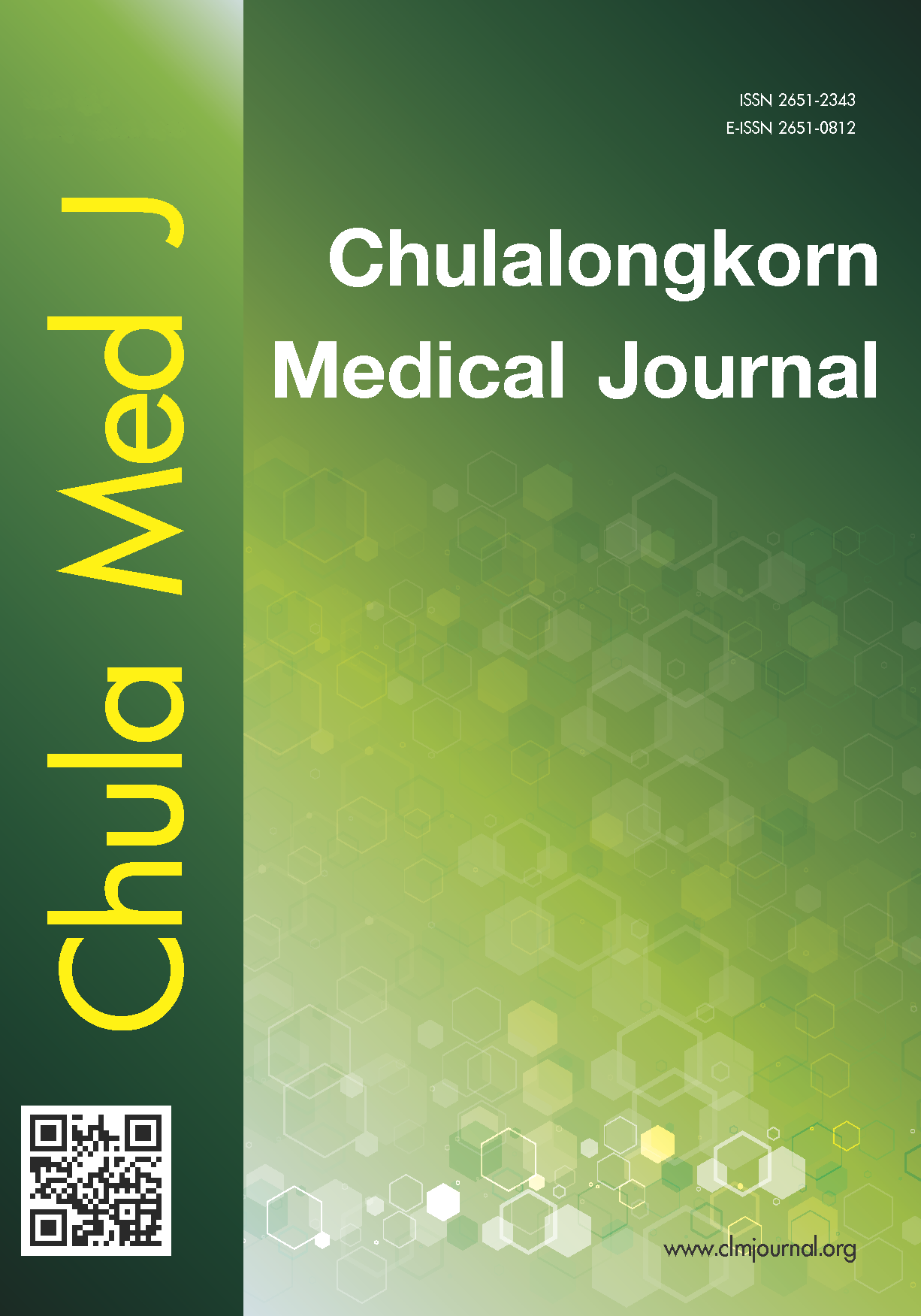Cognitive impairment and associated factors in the elderly at Pracha Niwet Village in Thailand
Main Article Content
Abstract
Background: Thailand has already become an aging society. Previous studies showed that cognitive impairment is one of the most common problems in the elderly. The prevalence of major neurocognitive disorder globally is between 5 - 7%. Currently, there are still limited data of cognitive impairment in Thailand.
Objectives: To determine the prevalence of cognitive impairment and to explore factors associated with it.
Methods: A descriptive study was conducted in the elderly aged above 60 years at Pracha Niwet Village from
September to October 2017. The research instruments consisted of four questionnaires:
1) the demographic data form,
2) the mini – mental state examination: Thai version (MMSE – Thai 2002),
3) the Thai geriatric depression scale (TGDS), and
4) the Thai version of the Pittsburgh sleep quality index (T-PSQI). The prevalence of cognitive impairment was presented by frequency and percentage. The associated factors of cognitive impairment were analyzed by chi-square test, Fisher’s exact test, and Pearson’s correlation coefficient. The predictors of cognitive impairment were analyzed by logistic regression analysis.
Results: Among 254 participants with the mean age of 77.1 7.3 years old; 66.5% of them were female. The
prevalence of cognitive impairment was 7.5% and the mean of MMSE – Thai 2002 score was 25.8 3.6. The
associated factors of cognitive impairment were hyperlipidemia ( < 0.01) and cardiovascular diseases (
< 0.05). Age, income, sleep duration, and TGDS score were correlated with MMSE – Thai 2002 score (r = -0.435, 0.271, -0.682, and -0.213, respectively). The predictors for cognitive impairment were hyperlipidemia and cardiovascular diseases (
< 0.05).
Conclusion: The prevalence of cognitive impairment was 7.5%. The associated factors and predictors of
cognitive impairment were hyperlipidemia and cardiovascular diseases.
